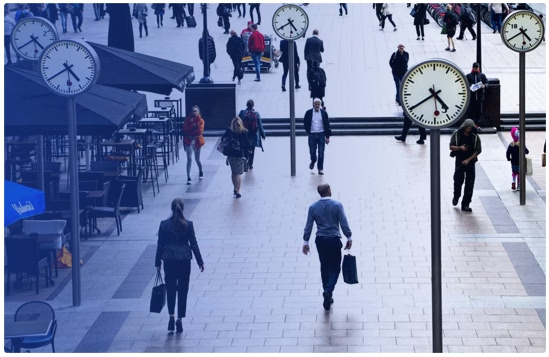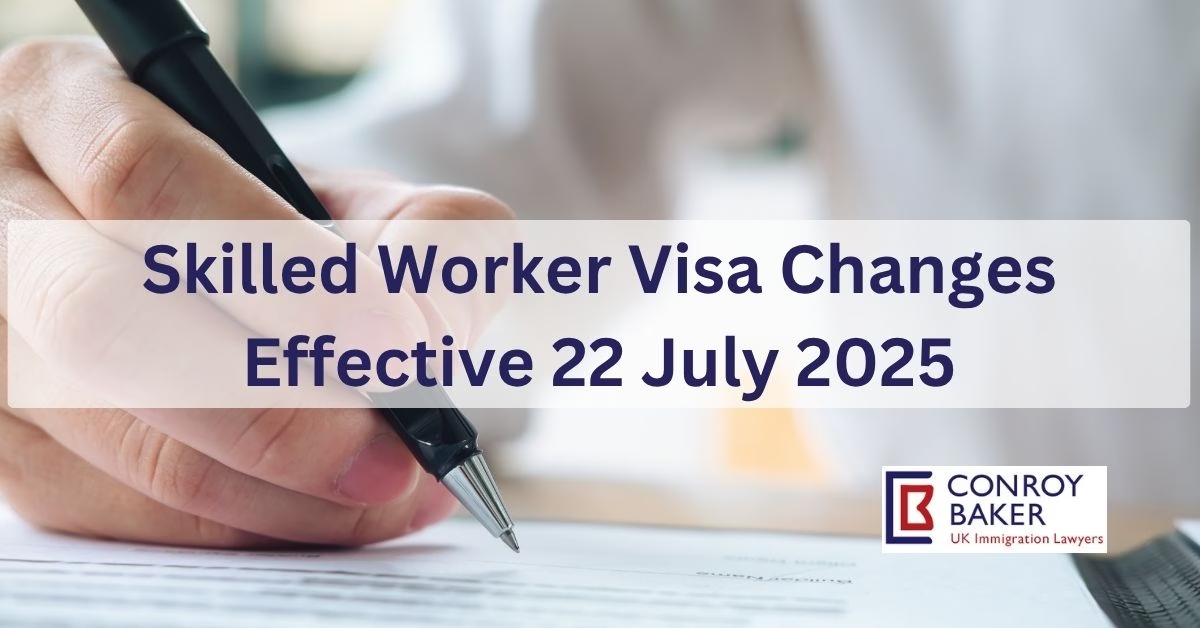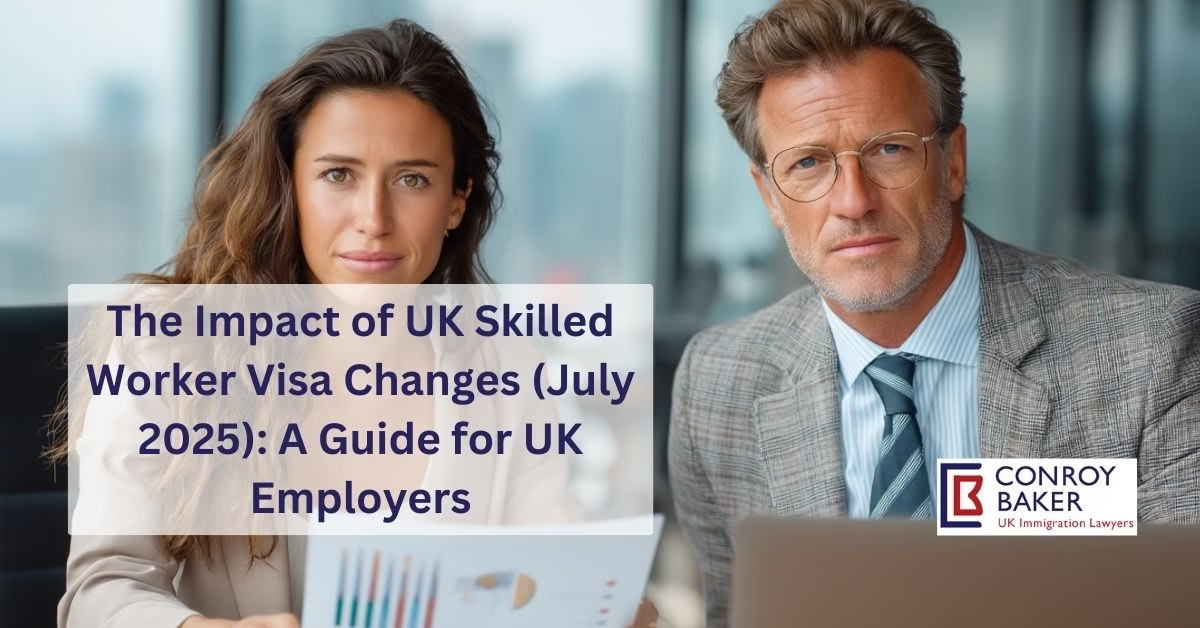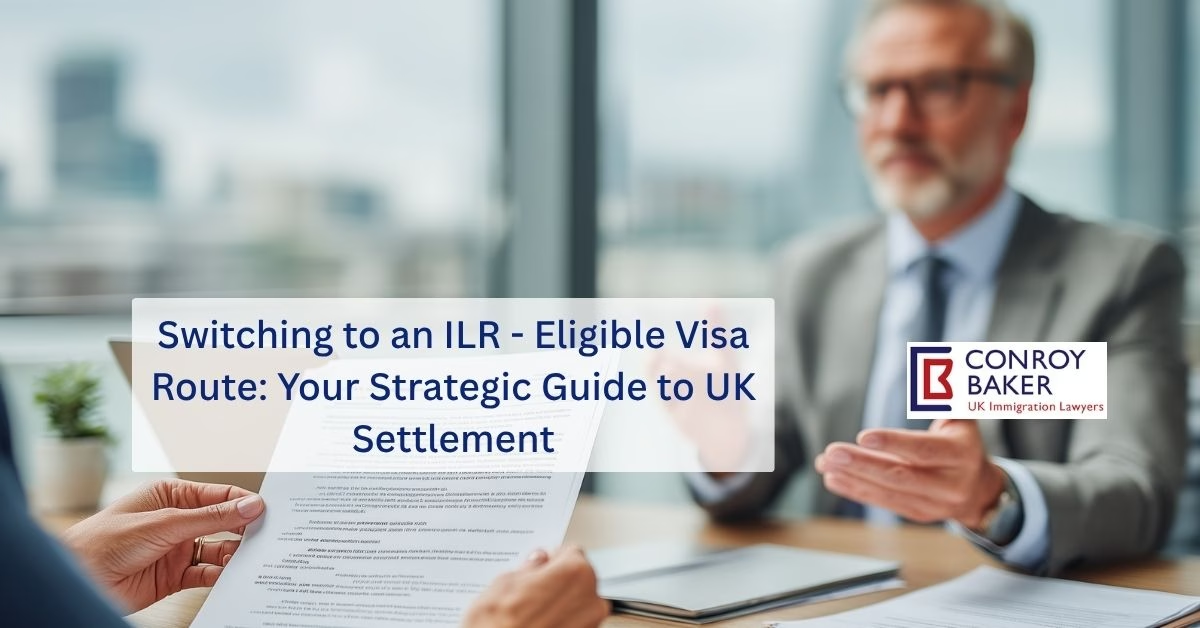UK Visit Visas: Your Expert Consultant in London for Every Journey
Your UK Visit to London. Clearly Planned.
Trusted Visa & Immigration Experts
Unlocking Your Pathway to the UK
Trusted Visa & Immigration Experts
Unlocking Your Pathway to the UK
Strategic Advisors for UK Success
Guidance from Application to Ambition
Personalised UK Solutions
Unlocking Potential for Individuals & Ventures
Navigating UK Visit Visas: Seamless Entry to the United Kingdom
The United Kingdom welcomes millions of visitors each year, whether for tourism, business, family reunions, or specialized engagements. For many international travelers, obtaining the correct UK Visit Visa is a mandatory step before embarking on their journey. At Conroy Baker Ltd., our specialist UK Visit Visas Consultant in London team is dedicated to simplifying this process, ensuring your entry to the UK is smooth and compliant with immigration regulations. We provide expert, up-to-date advice for all Standard Visitor Visa categories.
Your Trusted Partner for All UK Visit Visas
Understanding which UK Visit Visa category is appropriate for your travel purpose is crucial. Our expert immigration lawyers in London possess extensive knowledge across all visitor visa types. We offer personalized guidance, from assessing your unique travel intentions to the precise preparation and submission of your application. Trust Conroy Baker Ltd. to ensure Your UK Visit to London. Clearly Planned.
Explore Our Key UK Family Visa Services:
UK Business Visit Visa
For professionals traveling to the UK for short-term, permitted business activities such as meetings, conferences, or negotiations, the UK Business Visit Visa is the appropriate route. This visa does not allow for employment but facilitates crucial professional engagements. Our UK Visit Visas Consultant in London provides strategic advice to ensure your business trip is compliant and successful.
UK Tourist Visit Visa
Planning a leisure trip to explore the UK’s vibrant cities, historical landmarks, and scenic beauty? The UK Tourist Visit Visa is designed for individuals visiting for tourism, vacation, or recreational purposes. Our expert UK Visit Visas Consultant in London offers comprehensive guidance on eligibility, financial requirements, and demonstrating your intention to leave the UK at the end of your visit.
UK Family Visit Visa
If your primary purpose is to visit family members residing in the United Kingdom, the UK Family Visit Visa allows for short stays to reunite with your loved ones. This visa falls under the Standard Visitor Visa category and requires clear evidence of your relationship and your intention to depart the UK. Our compassionate UK Visit Visas Consultant in London team specializes in preparing thorough applications for family reunions.
UK Permitted Paid Engagement Visit Visa
For professionals with recognized expertise invited to the UK for a pre-arranged, short-term paid engagement, the UK Permitted Paid Engagement Visa offers a specific pathway. This includes artists, lecturers, and legal professionals. Our knowledgeable UK Visit Visas Consultant in London provides meticulous support to ensure your specialized visit is compliant and successful, without leading to general employment.
Explore Our Key UK Family Visa Services:
UK Business Visit Visa
For professionals traveling to the UK for short-term, permitted business activities such as meetings, conferences, or negotiations, the UK Business Visit Visa is the appropriate route. This visa does not allow for employment but facilitates crucial professional engagements. Our UK Visit Visas Consultant in London provides strategic advice to ensure your business trip is compliant and successful.
UK Tourist Visit Visa
Planning a leisure trip to explore the UK’s vibrant cities, historical landmarks, and scenic beauty? The UK Tourist Visit Visa is designed for individuals visiting for tourism, vacation, or recreational purposes. Our expert UK Visit Visas Consultant in London offers comprehensive guidance on eligibility, financial requirements, and demonstrating your intention to leave the UK at the end of your visit.
UK Family Visit Visa
If your primary purpose is to visit family members residing in the United Kingdom, the UK Family Visit Visa allows for short stays to reunite with your loved ones. This visa falls under the Standard Visitor Visa category and requires clear evidence of your relationship and your intention to depart the UK. Our compassionate UK Visit Visas Consultant in London team specializes in preparing thorough applications for family reunions.
UK Permitted Paid Engagement Visit Visa
For professionals with recognized expertise invited to the UK for a pre-arranged, short-term paid engagement, the UK Permitted Paid Engagement Visa offers a specific pathway. This includes artists, lecturers, and legal professionals. Our knowledgeable UK Visit Visas Consultant in London provides meticulous support to ensure your specialized visit is compliant and successful, without leading to general employment.
Why Choose Conroy Baker Ltd. for Your UK Visit Visas?
The success of any UK Visit Visa application hinges upon clear documentation, a demonstrable genuine purpose for your visit, and a clear intention to leave the United Kingdom. Meticulous preparation and a deep understanding of Home Office expectations are paramount to avoid frustrating delays or outright refusal.
As Top UK Immigration & Business Advisors in the UK, Conroy Baker Ltd. combines unparalleled expertise with a truly client-focused approach. We understand the nuances of each visit visa category, and we are committed to delivering outstanding immigration solutions. Your UK Visit to London. Clearly Planned.
Tailored Eligibility Assessments
Ensuring you apply for the correct visa type based on your precise travel purpose.
Meticulous Document Preparation
Guiding you in compiling robust evidence, especially regarding financial stability and ties to your home country.
Seamless Application Submission
Providing insights to strengthen your case and clarify your intentions to immigration authorities.
Accurate Application Submission
Minimizing potential errors and processing delays.
Refusal Assistance
Expert guidance if an application is refused.
We are here to help you achieve your travel and professional aspirations in the United Kingdom.
Frequently Asked Questions About UK Visit Visas
Planning Your UK Visit? Get Expert Guidance.
If you have questions about any UK Visit Visa category or require expert assistance with your application, our specialist UK Visit Visas Consultant in London is ready to provide support.
Please complete the form below with your details and specific questions. A member of our Top UK Immigration & Business Advisors in the UK team will contact you promptly to provide the dedicated guidance and support you require for your successful visit to the UK.
UK Immigration News Blogs
Find out the most recent information about UK immigration laws, news, and other important changes.











